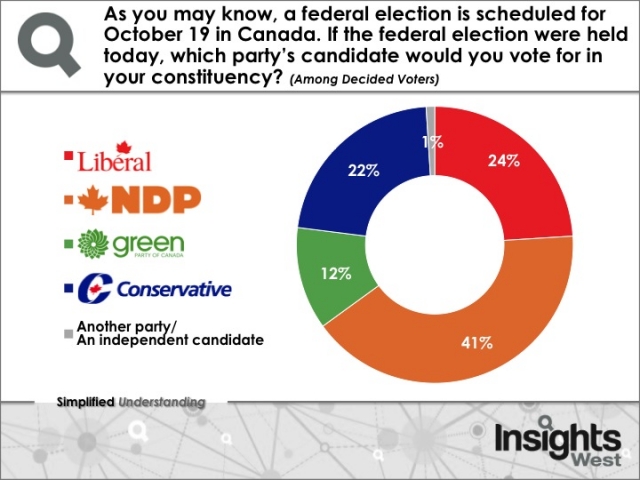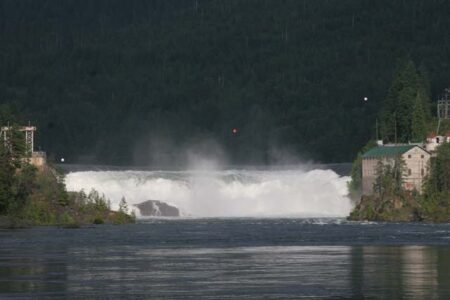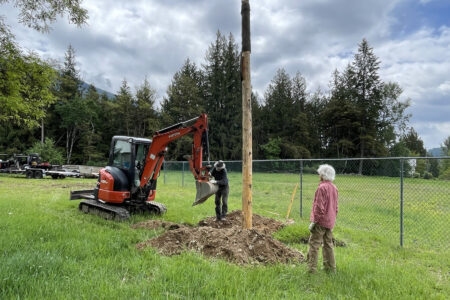Insights West poll gives NDP big lead in BC
Insights West is a progressive, Western-based, full-service marketing research company, said in a media release that if the federal election was held today, the Conservative Party would not do well in the province of BC.
The online survey of a representative provincial sample shows that, if the federal election were held today, 41% of decided voters in British Columbia (+6 since an Insights West poll conducted in early May) would cast a ballot for the New Democratic Party (NDP) in their constituency, followed by the Liberal Party with 24% (-1), the governing Conservative Party with 22% (-7), and the Green Party with 12% (+2).
The release said the lead for the federal New Democrats is consistent across both genders and three age groups. The Conservatives currently get their best numbers among voters aged 55 and over (29%, with the NDP at 41%), while the Liberals do best among voters aged 35-54 (27%, with the NDP at 42%).
In Metro Vancouver, the New Democrats are clearly ahead with 43%, followed by the Liberals with 25% and the Conservatives with 23%. On Vancouver Island, support for the Greens has increased markedly—from 20% in May to 32% in August—placing the party just seven points behind the NDP (39%).
Two-in-five decided voters (42%) say they could change their mind and support another party’s candidate in the federal election. The Conservatives (71%) and the NDP (63%) hold the highest proportion of fully committed voters, while the numbers are lower for the Liberals (49%) and the Greens (33%).
Approval, Momentum and Best Prime Minister
The approval rating for Official Opposition and NDP leader Thomas Mulcair stands at 55% (+3), closely followed by Green Party leader Elizabeth May (52%, +8) and Liberal Party leader Justin Trudeau (51%, +5). Prime Minister and Conservative Party leader Stephen Harper has the lowest numbers (28%, -7).
May posts the best momentum score of all four main party leaders with +11 (20% of British Columbians say their opinion of her has improved since the campaign began, while 9% say it has worsened), while Mulcair is at +7, Trudeau at +1 and Harper at -45 (with 50% of residents saying their opinion of the incumbent prime minister has worsened).
When asked who would make the best Prime Minister of Canada, Mulcair is now in first place with 27% (+5), followed by Trudeau with 20% (+1), Harper with 19% (-8) and May with 9% (+3).
“One of the big problems for the Conservative Party is the fact that three-in-ten of their own voters from 2011 are already looking elsewhere,” says Mario Canseco, Vice President, Public Affairs, at Insights West. “In addition, both the approval rating and the momentum score for the Conservative leader are significantly lower than what is observed with his rivals.”
British Columbians continue to regard the economy and jobs as the most important issue facing Canada (33%, +3), followed by government accountability (19%, -3), health care (12%, -3), the environment (also 12%, +4), and housing, poverty and homelessness (10%, -2).
NDP leader Mulcair is regarded as the candidate who is better suited to handle four issues: Housing, poverty and homelessness (35%), health care (34%), the economy and jobs (28%) and government accountability (26%). Harper leads on foreign affairs (25%) and crime and public safety (also 25%), while May is clearly ahead as the best person to handle the environment (43%).
British Columbians have no clear favourite on the issue of energy and pipelines, with one-in-five residents picking May (21%), Harper (20%) or Mulcair (also 20%).
Mulcair is also the preferred leader to handle child care (28%), surveillance and Bill C-51 (25%), helping Canada’s war veterans (also 25%), the future of Canada Post (22%) and the future of the Senate (21%). Harper is seen as the best person to deal with the fight against ISIS (23%).
Across British Columbia, three-in-four residents (75%) believe it is time for a change of government in Canada, including 43% of those who voted for the Conservative Party in 2011. In addition, 60% of British Columbians say they would be “very upset” if the Tories form the government again. The level of animosity towards a possible victory by either the Liberal Party or the NDP is significantly smaller (36% and 33% respectively).
Results are based on an online study conducted from August 20 to August 24, 2015, among 815 adult British Columbians. The data has been statistically weighted according to Canadian census figures for age, gender and region. The margin of error—which measures sample variability—is +/- 3.1 percentage points. Click here to view the detailed data tabulations.


























